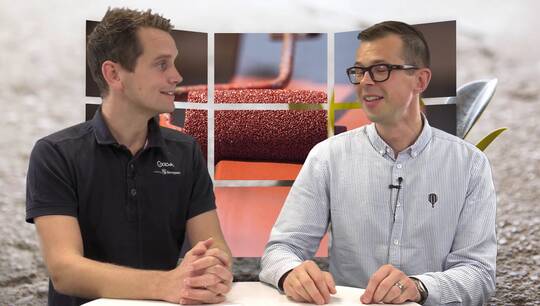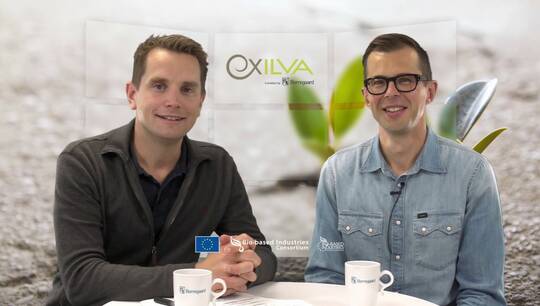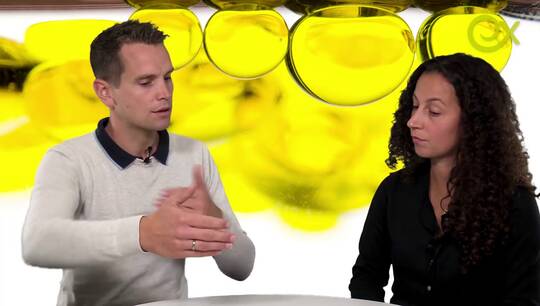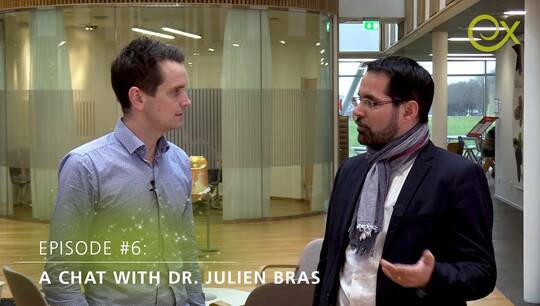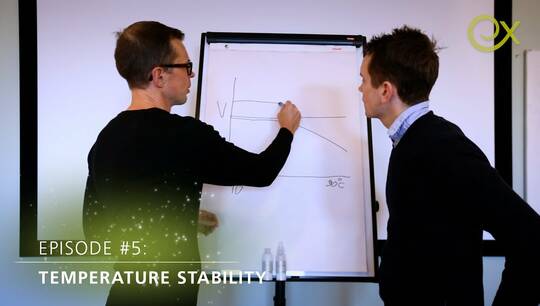Cellulose Fibrils
Topic Tuesday #16 Microplastics in Agriculture
How do we get rid of microplastics in AgChem? Listen to our #16 Topic Tuesday to hear our discussion on the topic!
Topic Tuesday 15 - Viscosity loss when tinting
Prevention of viscosity loss upon tinting in waterborne coatings
Topic Tuesday #14: Heat of Hydration
Heat of Hydration – avoiding cracks and tension issues in the curing phase of concrete. What is heat of hydration, and how does it affect the settling/curring of the concrete? Learn more about different types of concrete cracking, why they occur - and preventative measures and repair methods for fixing it. Hint: there are bio-based...
Topic Tuesday #13: Gypsum boards
Gypsum boards (plasterboard/drywall) are a very commonly used product in the construction industry. Currently, the production of the boards is a labor-intensive, CO2 producing and energy consuming process with the need for many synthesized additives to retain the flow, strength and setting profiles. What if you could change that? Research...
Topic Tuesday #12: Is bio-based becoming a consideration in construction industry?
We rely on well-proven construction technologies wherever we move around. The construction technologies have been developed for decades to make sure that we have long-living and safe infrastructure and buildings around us. But in a world moving in increasing speed towards more emphasis on lowering emissions and waste, how is the construction...
Topic Tuesday #11: Lime mortar can better compete with concrete
Lime, consisting of air lime and hydraulic lime, is one of the most important historical construction materials. Due to new plasticizer technologies available, we are now seeing a new golden era approaching for this material? Don't miss out on this Topic Tuesday subject that can give you insights into improving lime mortar formulations which can...
Topic Tuesday #10: Safer and better batteries with thinner and stronger films
Trends are clear; today's technology demands expect smaller and lighter devices, while at the same time the need for digital speed, pace and stamina is a potential deal breaker. How do you cope with this when developing tomorrows technology? In today's Topic Tuesday we serve you some interesting thoughts on how to keep your batteries safer, so...
Topic Tuesday #9: Sag vs. leveling. Can you handle 'em both?
Cellulose fibrils Topic Tuesday Episode #9: A fast recovery is good, and some times crucial, but that would also affect the leveling, right? In this weeks Topic Tuesday, we discuss how you can cope with the issue of getting fast recovery - and avoid sag - while getting your coating layer in level. We may also have some exciting ideas for you if...
Topic Tuesday #8: You need to change the way you think!
Cellulose fibrils Topic Tuesday Episode #8: Technical Application Manager at Borregaard Cellulose Division, Otto Soidinsalo, joins Marketing Manager Mats Hjørnevik in a discussion on how governmental demands may change the way producers need to think in their innovation. As an example, this discussion focus on China and their legal actions...
Topic Tuesday #7: How to make an emulsion
Cellulose fibrils Topic Tuesday Episode #7: Senior Research Scientist Rebecca Blell serve us some thoughts on oil in water emulsions; what they are, how to make them and how to keep them stable.
Topic Tuesday #6: Interview with Dr. Julien Bras
Cellulose fibrils Topic Tuesday Episode #5: Dr. Julien Bras from Grenoble Institute of Technology is one of the pioneers in the concept of nanocelluose and MFC. Hear what he has to say about the future of MFC.
Topic Tuesday #5 - Temperature Stability
Cellulose fibrils Topic Tuesday Episode #5: This week we will show you the robustness of your product's rheology profile under different temperatures when using cellulose fibrils.







